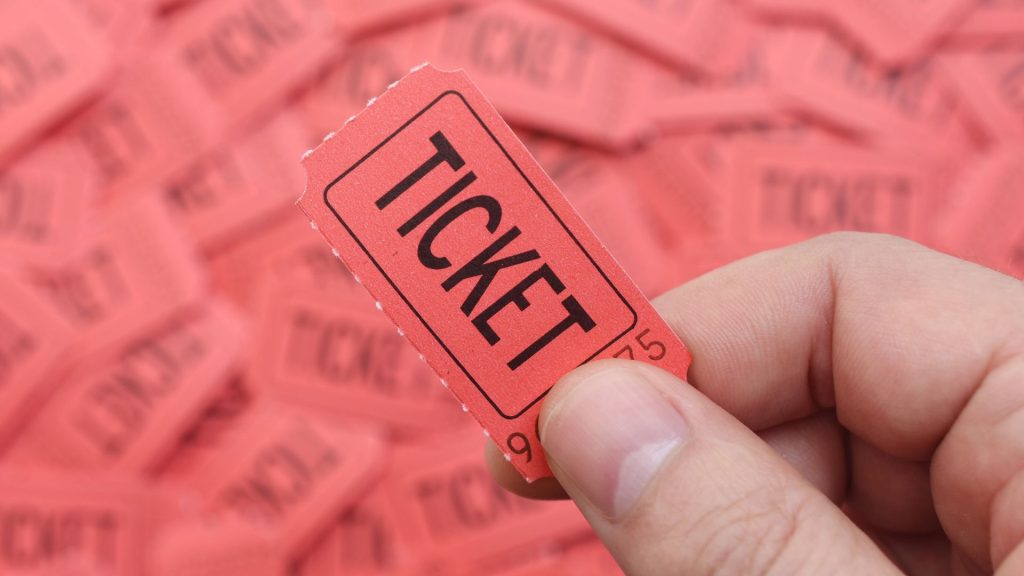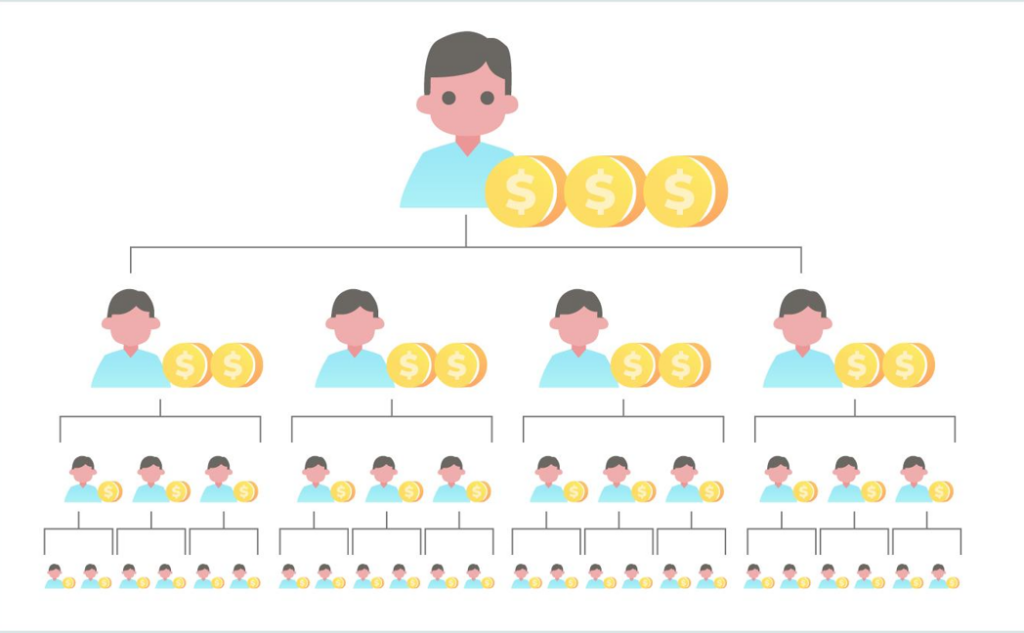“Is high ticket affiliate marketing legit?” – a lot of people question the online business model. In this blog post, we will shed some light on what high-ticket affiliate marketing works and why there are so many rumors about it.
This topic become really hot in 2025. You can see how people get crazy about it on Google Trends.

What is high-ticket affiliate marketing?
High-ticket affiliate marketing is when affiliates promote expensive products (typically over $500) and earn high commissions per sale. This approach allows affiliates to make significant income with fewer conversions compared to low-ticket products.
High-ticket affiliate marketing is technically affiliate marketing. In this model, affiliates only target high-cost products that offer high commissions.
For example, you could promote a coaching program that costs $5,000 and pays a 10% commission, meaning you would earn $500 for each sale. You can earn a lot of money in a single sale, even up to $7,000 in some cases.
Generally, a “high ticket” product is worth more than $1,000. The commission for each sale generated sometimes ranges from hundreds to a five-figure number.
Is High-ticket Affiliate Marketing legit?
Yes, high-ticket affiliate marketing is a legitimate business model, allowing you to earn commissions by promoting high-value products or services. However, it’s not a get-rich-quick scheme. It requires effort, skill, and navigating a competitive market.
High-ticket affiliate marketing is affiliate marketing with some particular product price specificity. There is no reason for it to be illegal. This is probably one of the most common misunderstandings in affiliate marketing.
High ticket sales can be legitimate as they involve selling expensive products or services. You can earn hundreds of dollars, but be cautious of scams. Some companies take advantage of affiliates’ desire to make money. Therefore, always research and verify before committing.
However, you need to be aware of the scam.
You typically get bombarded by a shady dude who want you to join a rich-quick with a high-ticket affiliate program. They plan to lure you to pay money upfront to get some training on how to sell high-value products. But guess what? The products are either crap or even nonexistent. So the only way to make money is to recruit more suckers like you. That’s when it transforms into a pyramid scheme. Many people lose money while joining a high-ticket affiliate marketing course. Thus, they claim that high-ticket affiliate marketing is a pyramid scheme, or MLM, or scam, or something else like that.
Such accusations are not true. However, they are likely wake-up calls – to be honest, this scheme of scams is pretty popular these days.
What are the signs of an affiliate marketing scam?

One day, you wake up bombarded by some shady dudes who want you to join a rich-quick with a high-ticket affiliate program. Just block them ASAP, because they are probably trying to scam you big time. Some red flags point out a scam disguised under the name of affiliate marketing:
- Emphasis on recruiting: A clear sign showing that the group growth is relying on the newcomers, but not selling valid products.
- Lack of information about the organization leaders: The heads of a fraudulent scheme never disclose their important or real information. Avoid legal accusations when the scams are exposed.
- Fairy Tale Promises: Be cautious of programs promising unrealistic earnings like thousands of dollars a day with minimal effort. If it sounds too good to be true, it is probably not true.
- Pressure to Act Fast-and-Furious: Watch out for intense pressure to join quickly. Legitimate opportunities never rush you to act immediately.
- Entry fee: Ask for initial cash to join, or to join an “advance-sale-technique” class or something else.
- Unexpected Costs: Be alert to undisclosed fees or expenses, such as mandatory event payments or a “training fee”. Unexpected costs can bring irreversible money losses. And, as we mentioned before, it could be a sign of a pyramid scheme.
In general, scammers use many schemes to lure you into the trap, so be careful before participating in any of them.
High-Ticket Affiliate Marketing: Pros and Cons
High-ticket affiliate marketing involves promoting high-ticket products or services—typically those with a higher price point—to a targeted audience. Here are some key points about high-ticket affiliate marketing, along with its pros and cons:
| Pros | Cons |
| 1. Higher Average Income: As mentioned, the potential earnings from high-ticket affiliate marketing are much greater than traditional affiliate marketing. 2. Less Traffic Needed: Since the commissions are higher and the customer base is narrower, you don’t need as much traffic to your site to earn. 3. Better Customer Support: Pricy items often come with flawless customer service. It gains customer satisfaction and lower refund rates. | 1. Picky Consumers: No one wants to pay huge amounts for valueless items. Requires personalized approach 2. Longer trust-building journey: as your audience usually are difficult customers, it needs more effort to communicate with and deliver messages to the customers. 3. Limited Audience: The higher price means fewer people interested in the products you are promoting. |
It is important to note that high-ticket affiliate marketing requires different promotion channels than traditional affiliate marketing. Also, choosing the right products for your niche is also crucial.
Is High-Ticket affiliate marketing a pyramid scheme?

No, high-ticket affiliate marketing is NOT a pyramid scheme, provided that the company has clearly defined conditions or guidelines, doesn’t charge a fee for joining, and only pays affiliates based on outcomes.
High-ticket affiliate marketing is a legitimate business model where affiliates promote valuable products directly and earn commissions based on their sales. It differs significantly from pyramid schemes, which are illegal in many countries and prey on people’s desire for quick riches through recruitment and investment. In summary, high-ticket affiliate marketing is a legitimate strategy, not a pyramid scheme
High-ticket affiliate marketing is not a pyramid scheme (and of course, so does affiliate marketing). It’s a legitimate way to earn money online by promoting products or services that you like and trust.
High-ticket affiliate marketing vs. pyramid scheme: The differences
High-ticket affiliate marketing is different from a pyramid scheme. In a pyramid scheme, people at the top get most of the money and the ones at the bottom get nothing. Meanwhile, high-ticket affiliate marketing pays you a commission for every sale that comes from your referral link. You can make more money if you refer customers who buy expensive items, but that is not even close to taking advantage of them.
Affiliate marketing is a triple-win situation for everyone involved. You help customers find the best products matching their demands, and also help the seller grow their business. As long as you’re honest and ethical, you have nothing to worry about.
In a pyramid scheme, they come first to take first, and 30% to 95% of attendants can not take their money back. Furthermore, you have to recruit more people or pay fees to join – which is potentially harming your reputation due to suspicious rumors behind you.

Which one is better? High ticket or low ticket affiliate marketing?
Well, both of them have their pros and cons. Briefly, High-ticket targets smaller brackets of customers having particular demands. On the contrary, low-ticket products are accessible to everybody but will give you a much smaller commission.
So, the exact question is, which type of model is more suitable to your niche?
With low affiliate marketing, it is best suited for niches with a large audience. For example, products that everybody needs just as clothes, smartphones, home improvement products, etc…
High-ticket affiliate marketing is ideal for niches with a more targeted audience where products or services have a higher price point. This approach focuses on promoting and selling high-value items, for example: Luxury Goods, Finance and Insurance, B2B services, or Specialized services.
Please note that it is possible to combine both. You can start with lower-price referrals and then introduce more pricy options when the trust is built.
Is High-ticket affiliate marketing hard?
High-ticket affiliate marketing has gained a lot of attention due to its earning potential. Affiliates at all levels love it!
However, high-ticket affiliate marketing is not for everybody
High-ticket affiliate marketing is indeed more difficult than normal affiliate marketing! The main reason is that high-ticket products are only sellable to a small group of audience, which demands a different approach to generating leads and sales.
High-ticket affiliate marketing can be challenging due to several factors:
- Higher Investment Requirements: High-ticket products or services often come with higher price tags, which may require more effort to promote effectively. The initial investments may include more money invested in marketing materials, and more time and effort to develop advanced marketing strategies and skills.
- Establishing Trust: Convincing customers to invest in high-ticket items often requires establishing trust and credibility. New affiliates may face challenges in building a reputation and convincing potential buyers of the value they offer.
- Longer Sales Cycles: People tend to spend a long duration contemplating before ordering a high-ticket item. New affiliates may need to be patient and persistent in nurturing leads!
While high-ticket affiliate marketing may be challenging for affiliates, it is certainly possible. The prerequisites are your willingness to dedicate, preserve, learn, and adopt.
Can beginners do high-ticket affiliate marketing?
High-ticket affiliate marketing is not easy for new affiliates, though not impossible. The key is to follow the right step-by-step approach.
The biggest challenge for beginners?
The key drawback of high-ticket affiliate marketing is that selling expensive products requires a more complex and prolonged sales process. The goal, in many cases, is not really about traffic numbers but building enough trust within a specific customer circle.
Most people spend more time researching significant expenses like cars or household appliances. So, there’s no reason for them to believe some random guys on the internet, so it is time for customers to comfortably spend money on those pricey products.
It’s essential to be patient and adaptable, as success in affiliate marketing takes time and ongoing effort!